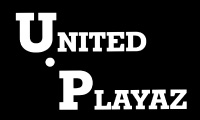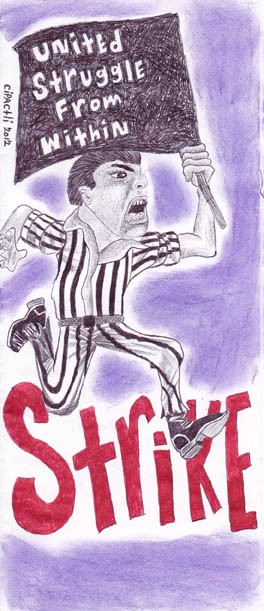
GP and SNY Prisoners Guilty of Playing Prison Politics
Greetings to you no matter your affinity, association, involvement or activities in LOs or case status. There is a higher cause that demands our attention and support than being side tracked by petty conflicts or lack of prioritization.
As a result of some censorship by prisoncrats here at the infamous Corcoran SHU, only yesterday did I receive ULK23 after a two month delay. In the pages of ULK I see that the sensibilities of some SNYs have been ruffled.
This is not about attacking anyone’s sensitivities, nor is it about why any person chooses or allows themselves to be subjected to the indignity and dishonor of being classified as SNY while still trying to allude to being solid, which is illogical and demonstrates confusion.
Let’s be clear about the fact that whatever excuse one chooses to justify their conditions does not mean that I should sympathize or empathize with that individual’s decision or choice.
I take issue with the premise that General Population (GP) prisoners created SNYs since prisoncrats did that and CCPOA created prison politics and has nourished the growth. The fact that so many so-called GPs are quick to say in the presence of picklesuits or other informants that they are active for some false sense of machismo plays into the ploys of prisoncrats.
When I last sought to address this issue an SNY prisoner took offense even though nothing was directed at only SNYs, as I pointed out the fact that there are and have been a plethora of agent provocateurs and quislings in GP who are traitors to their own LOs working in lock step with the picklesuits.
As a prisoner of the state, it is not my job to inflict punishment on any other prisoner for the crime prosecuted by the state, that’s what a sentence is for and I am by no means a surrogate prisoncrat. In this day and age I do not draw a distinction between open SNY prisoners and undercover ones who suck up to prisoncrats and are motivated for the same reasons. Some supposedly solid comrades went to SNY supposedly to receive a release date, which to some may sound like a strong argument but to me is muddy water.
I do not have a duty or responsibility to provide IGI intelligence or a means of controlling the way I may think in exchange for a parole date; that is not freedom. Why concern ourselves with whether a cat hails from the north, south, east or west! I say white, black, brown, yellow or green! Why should I concern myself with what LO he/she claims to belong?
In most cases the need to publicly profess or denounce the appellation is a mental/emotional need, or a result of official intimidation to make decisions that individuals must live with. It does not mean that anyone has given up their usefulness and ability to support a prisoner’s cause!
Trust is not a given, nor do I give anyone the benefit of doubt just because they claim to be this or that. Trust is a hard won concept and only fools expose their personal inclinations and assume such will not be used against them by some character who is motivated by self-serving greed or malevolence. Even cowards, traitors, rats and deviants can try to make amends, but that does not mean such will regain trust and respect lost as of a result of ones choices.
The CDCR has found that the practice of intimidation, deprivation and manipulation works well on prisoners who allow themselves to become susceptible to such tactics and motivations to betray their comrades’ confidences. In my opinion this is inexcusable, but such is a mental/emotional weakness that’s identifiably been around since the beginning of civilization.
In these prisons many fail to acknowledge that 75% of the officially validated disruptive group members are based upon self-admission and/or public display of such affiliations, which include but are not limited to cats telling prisoncrats that they are this or that and so and so is my homeboy!
It is not for me to tell other prisoners what to do, and I do not have any qualms with sticking to morals and principals I grew up with, which means I will not take others down with me and I do not volunteer/provide the prisoncrats with intelligence on myself, family, friends, or people I may know. Why should I? What special consideration or privileges are that important? The problem is too many prisoners focusing on privileges rather than rights.
I am pursuing my own kind of sacrifice in that my prison term has been over since April 15, 2011. Parole is “an established variation on imprisonment of convicted criminal: the essence of parole is release from prison before the completion of a sentence on condition that a prisoner abide by certain rules during the balance of a sentence…” Yet prisoncrats have corrupted and confused the concept of parole to mean something more which while the Federal Bureau of Prisons jurisdiction adds a period of supervised release, such is not parole by definition.
Many prisoners tend to assume that my refusal to sign a parole contract is because I presumably have nowhere to go or have burned all my bridges. I have served all the time doubled and enhanced thus I should be allowed to leave the state and country if I so choose.
I am not at war with other prisoners and I am not into who-riding/who-banging or talking smack about others in what I see as intentional perpetuation of conflict and ethnic biases that keep us from maintaining a United Front in the face of the true demons who constantly attack and abuse prisoners with no real accountability, continuing the erosion and loss of civil and human rights.
I cannot and will not compromise my intellect and principals in exchange for a bigger prison where threat of re-imprisonment is used to try to end my activism for prisoner rights, justice and accountability of prisoncrats/picklesuits. This is my sacrifice in this multifaceted struggle, so GP/SNY whatever your circumstances may be there are many ways to contribute to the struggle and affronts to human dignity.
MIM(Prisons) responds: Overall this prisoner’s letter makes a good case for the point that prisoners in both GP and SNY need to be judged by their actions, not their prison-imposed label. And that we need to fight snitching and self-labeling everywhere. But we disagree with the conclusion that prisoners who accept SNY classification can’t be solid revolutionaries. There are those who move to SNY without ratting anyone out, to preserve their own life. They accept the SNY label as the lesser evil to the alternative of danger or even death in GP. We never know all the facts of these decisions and so we can only look to people’s actions, wherever they are, to judge whether they are true revolutionaries on the side of the world’s oppressed.
Related Articles:









